Filter by
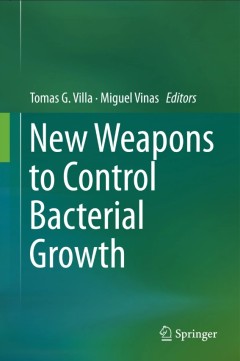
New Weapons to Control Bacterial Growth
Written by specialists in the different fields, this book presents new perspectives and insights into strategies and weapons to fight microbial infections. It also reviews the “state of the art” of alternative treatment approaches and new therapeutic agents to deal with infections caused by multidrug-resistant microorganisms. In an era of accumulated resistance to current antibiotics, it is…
- Edition
- 1
- ISBN/ISSN
- 978-3-319-28366-1
- Collation
- VI, 556
- Series Title
- -
- Call Number
- -
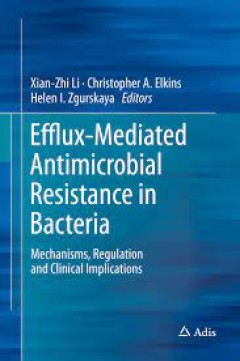
Efflux-Mediated Antimicrobial Resistance in Bacteria Mechanisms, Regulation …
This book, written by leading international experts, provides a comprehensive, current examination of transport-mediated antimicrobial resistance. As a particularly powerful mechanism of multidrug resistance, an in-depth examination of efflux pumps is conducted with bacteria of major public health concern including Enterobacteriaceae, Acinetobacter, Neisseria, Pseudomonas, staphylococci, and my…
- Edition
- -
- ISBN/ISSN
- 978-3-319-39658-3
- Collation
- -
- Series Title
- -
- Call Number
- -
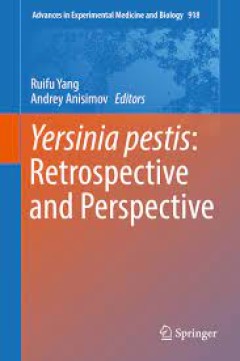
Yersinia pestis: Retrospective and Perspective
This book addresses nearly every aspect of Y. pestis, approaching it from a new perspective. Topics covered include the history, epidemiology, physiology, ecology, genome, evolution, pathogenesis, host-pathogen interaction, big-data-driven research, vaccines, clinical aspects and future research trends. For centuries, scientists have sought to determine where Y. pestis, the most well-known bact…
- Edition
- -
- ISBN/ISSN
- 978-94-024-0890-4
- Collation
- -
- Series Title
- -
- Call Number
- -
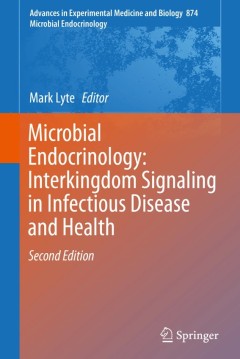
Microbial Endocrinology: Interkingdom Signaling in Infectious Disease and Health
This new edition highlights the numerous advances made in the field of microbial endocrinology over the last five years. Prominent among these new topics featured is the emergence of the microbiota-gut-brain axis and the role it plays in brain function. Specific focus is given to the role of microbial endocrinology in the evolutionary symbiosis between man and microbe as it relates to both heal…
- Edition
- 1
- ISBN/ISSN
- 978-3-319-20214-3
- Collation
- XIII, 374
- Series Title
- Advances in Experimental Medicine and Biology
- Call Number
- -
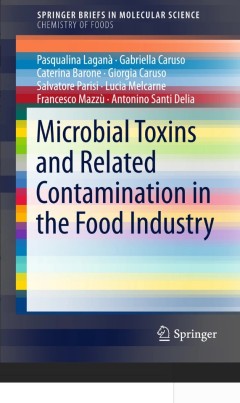
Microbial Toxins and Related Contamination in the Food Industry
This Brief concerns the chemical risk in food products from the viewpoint of microbiology. The “Hazard Analysis and Critical Control Point” (HACCP) approach, which is applied for this purpose, is dedicated to the study and the analysis of all possible dangers by food consumptions and the related countermeasures with the aim of protecting the health of consumers. This difficult objective is …
- Edition
- 1
- ISBN/ISSN
- 978-3-319-20558-8
- Collation
- VI, 101
- Series Title
- SpringerBriefs in Molecular Science
- Call Number
- -
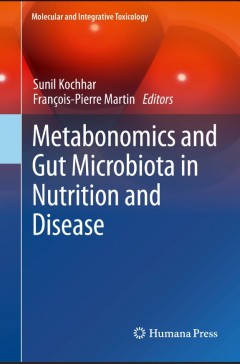
Metabonomics and Gut Microbiota in Nutrition and Disease
This book provides a comprehensive overview of metabonomics and gut microbiota research from molecular analysis to population-based global health considerations. The topics include the discussion of the applications in relation to metabonomics and gut microbiota in nutritional research, in health and disease and a review of future therapeutical, nutraceutical and clinical applications. It also …
- Edition
- -
- ISBN/ISSN
- 978-1-4471-6538-5
- Collation
- XVI, 375
- Series Title
- Molecular and Integrative Toxicology
- Call Number
- -
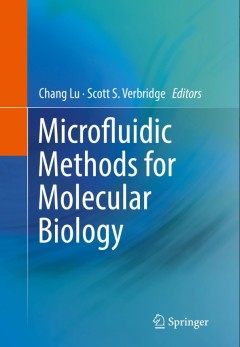
Microfluidic Methods for Molecular Biology
This book covers the state-of-the-art research on molecular biology assays and molecular techniques enabled or enhanced by microfluidic platforms. Topics covered include microfluidic methods for cellular separations and single cell studies, droplet-based approaches to study protein expression and forensics, and microfluidic in situ hybridization for RNA analysis. Key molecular biology studies u…
- Edition
- 1
- ISBN/ISSN
- 978-3-319-30017-7
- Collation
- XII, 376
- Series Title
- -
- Call Number
- -
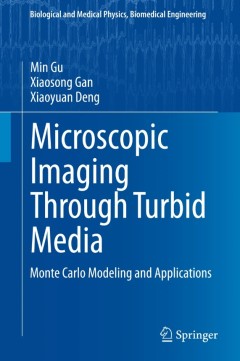
Microscopic Imaging Through Turbid Media
This book provides a systematic introduction to the principles of microscopic imaging through tissue-like turbid media in terms of Monte-Carlo simulation. It describes various gating mechanisms based on the physical differences between the un scattered and scattered photons and method for microscopic image reconstruction, using the concept of the effective point spread function. Imaging an obje…
- Edition
- 1
- ISBN/ISSN
- 978-3-662-46396-3
- Collation
- XII, 187
- Series Title
- Biological and Medical Physics, Biomedical Engineering
- Call Number
- -
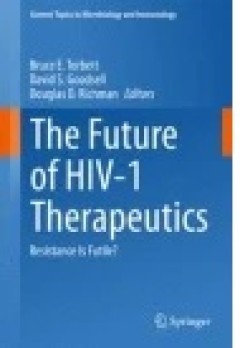
The Future of HIV-1 Therapeutics
This volume thoroughly covers HIV-1 antiretrovirals currently in clinical use, together with their advantages and limitations. HIV-1 inhibitor resistance is discussed in detail, and critical assessments as to what will be required of future antiretrovirals in order to halt viral replication, reduce viral resistance, and alter the state of viral latency are presented. Experts at the forefront of…
- Edition
- -
- ISBN/ISSN
- 978-3-319-18518-7
- Collation
- X, 254
- Series Title
- Current Topics in Microbiology and Immunology
- Call Number
- -

How to Overcome the Antibiotic Crisis: Facts, Challenges, Technologies and Fu…
This volume focuses on antibiotics research, a field of topical significance for human health due to the worrying increase of nosocomial infections caused by multi-resistant bacteria. It covers several basic aspects, such as the evolution of antibiotic resistance and the influence of antibiotics on the gut microbiota, and addresses the search for novel pathogenicity blockers as well as historic…
- Edition
- -
- ISBN/ISSN
- 978-3-319-49282-7
- Collation
- XII, 496
- Series Title
- -
- Call Number
- 610 HOW
 Computer Science, Information & General Works
Computer Science, Information & General Works  Philosophy & Psychology
Philosophy & Psychology  Religion
Religion  Social Sciences
Social Sciences  Language
Language  Pure Science
Pure Science  Applied Sciences
Applied Sciences  Art & Recreation
Art & Recreation  Literature
Literature  History & Geography
History & Geography